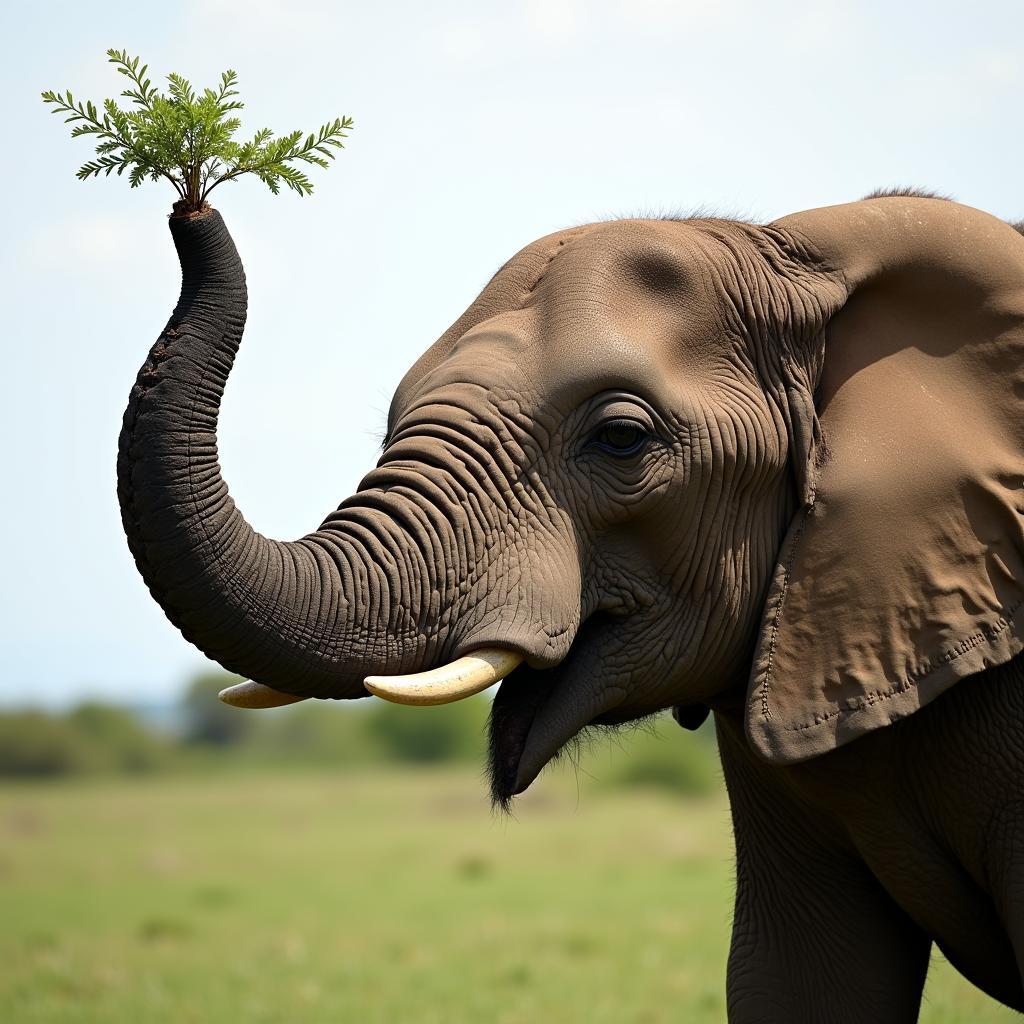African Elephant Teeth Facts: Tusks, Molars, and More
African elephants, the largest land mammals on earth, possess remarkable teeth that play a crucial role in their survival. These magnificent creatures utilize their teeth not just for eating but also for a range of tasks vital to their existence in the wild. This article delves into fascinating facts about African elephant teeth, exploring their unique features, functions, and the threats they face.
The Mighty Tusks: More Than Just Teeth
Tusks, the most prominent feature of an African elephant’s dentition, are actually elongated incisor teeth that protrude from their upper jaw. Both male and female African elephants possess these impressive ivory structures, unlike their Asian counterparts where tusks are predominantly a male feature. These tusks are deeply rooted in the elephant’s skull and can grow throughout their lifetime.
A Multi-Purpose Tool
African elephants utilize their tusks for a variety of tasks, making them indispensable tools for survival. These tasks include:
- Digging: Tusks act as efficient shovels, enabling elephants to dig for water, essential minerals, and roots.
- Stripping Bark: The sharp edges of the tusks are perfect for stripping bark from trees, a vital source of nourishment.
- Defense: When threatened by predators like lions or hyenas, elephants use their tusks as formidable weapons for defense.
- Social Interactions: Tusks play a crucial role in establishing dominance within the herd hierarchy.
Tusks and the Ivory Trade
The ivory trade poses a significant threat to African elephants. The high value placed on ivory has led to widespread poaching, decimating elephant populations across Africa. You can learn more about the differences between African and Asian elephants on our dedicated page: difference between african and asian elephants.
The Grinding Power of Molars: An Elephant’s Eating Machine
While tusks capture the limelight, an African elephant’s molars are equally fascinating. Unlike humans, who possess two sets of teeth throughout their lives, elephants have a unique system of tooth replacement.
Tooth Conveyor Belt: A Lifetime of Chewing
African elephants are born with a set of premolars and develop molars as they age. These molars, six in each jaw, are enormous and highly specialized for grinding plant material. As the elephant ages and wears down its molars, new teeth erupt from the back of the jaw, pushing the worn-out teeth forward. This continuous process, resembling a conveyor belt, provides the elephant with fresh grinding surfaces throughout its lifetime.
Dietary Adaptations
African elephants are herbivores, meaning their diet consists entirely of plants. Their molars, with their unique ridged surfaces, are perfectly adapted for grinding tough plant fibers, grasses, and bark, ensuring they extract maximum nutrients from their food.
Protecting Elephant Teeth: Conservation Efforts
The survival of African elephants depends on protecting their teeth. Conservation efforts focus on:
- Anti-Poaching Measures: Strengthening law enforcement and combating the illegal ivory trade are crucial for safeguarding elephant populations.
- Habitat Protection: Preserving natural habitats ensures elephants have access to food and water sources, reducing the risk of human-wildlife conflict.
- Raising Awareness: Educating communities about the importance of elephant conservation fosters a sense of responsibility and encourages support for protective measures.
African Elephant Teeth FAQs
1. How much do African elephant tusks weigh?
African elephant tusks can weigh anywhere from 25 to 100 pounds each, with some exceptional cases reaching even greater weights.
2. How many teeth do African elephants have in total?
Including their tusks and molars, African elephants have a total of 26 teeth throughout their lifetime.
3. Why are African elephant teeth important?
Elephant teeth, especially their tusks and molars, are essential for their survival, enabling them to feed, defend themselves, and interact socially.
4. Can elephants survive without their tusks?
While elephants can survive without tusks, they face significant disadvantages in the wild, especially when it comes to feeding, digging for water, and defense.
5. What can I do to help protect African elephants?
You can support reputable organizations working on elephant conservation, spread awareness about the threats they face, and advocate for responsible tourism practices.
Delve Deeper into the World of African Elephants
To explore more fascinating facts about African elephants, check out these informative links:
Need More Information?
If you require further assistance, please feel free to contact us:
- Phone: +255768904061
- Email: kaka.mag@gmail.com
- Address: Mbarali DC Mawindi, Kangaga, Tanzania
Our dedicated customer support team is available 24/7 to assist you.

